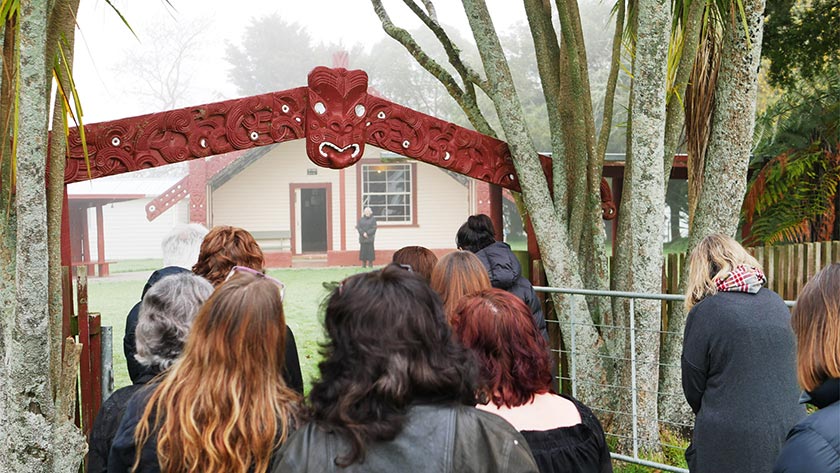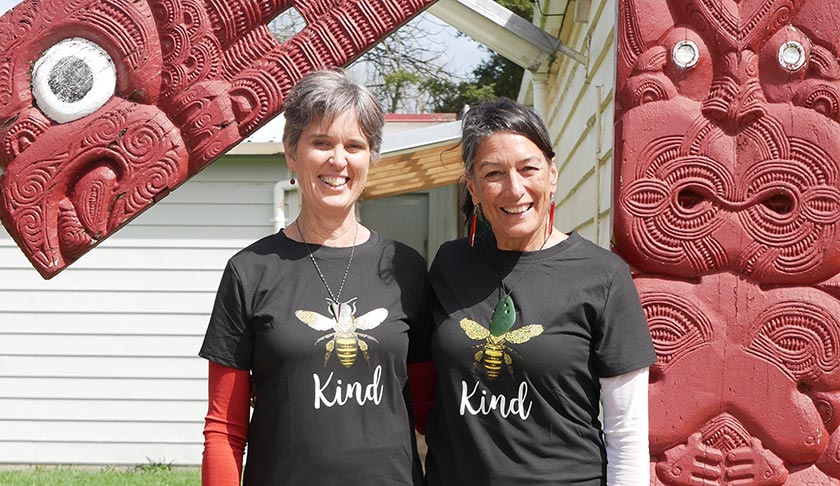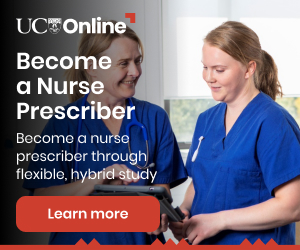
On a spring morning shrouded in fog, 12 nurses came together at Te Kōpua Marae, Te Awamutu, for the first face-to-face workshop in New Zealand on integrative nurse coaching. This was the first course outside the United States to be endorsed by the International Nurse Coach Association (INCA) and Nurse Coach Academy (NCA).
The weekend workshop was run by Anah Aikman and Heather Leong, the first two New Zealand nurses to have completed the integrative nurse coach certificate program (INCCP). Having just completed the INCCP myself at the time, to become the third integrative nurse coach (INC) in the country, I was keen to go along to support my colleagues and participate in coaching and learning in a group setting.

Integrative nurse coaching is the “emergence of a distinct nursing role that puts clients/patients at the centre and assists them in establishing health goals, creating change in lifestyle behaviors for health promotion and disease management”.1 Its roots can be traced back to Florence Nightingale, and her vision of what a healthy world might be. Nightingale was integral in the reform of sanitation and health care in England, and identified environmental determinants of health such as clean air, water, food and housing, as well as social determinants including poverty, education, family relationships and employment.
Individual change
Today, an INC is a “registered nurse who views clients/patients as integrated whole beings and honours and emphasises each person’s unique history, culture, beliefs, and story.”1 An INC recognises that a person’s health and wellbeing are influenced by their internal and external environments. They understand that individual change begins from within, before it can be manifested and sustained externally.
We were welcomed onto Te Kōpua Marae with a pōwhiri led by kaikaranga Waitiahoaho Te Ruki. Te Kōpua Marae is Anah’s spiritual home – a sacred place to connect with ancestors, recognise their contributions and uphold and embrace the enduring values, knowledge and holistic concepts of te ao Māori, the Māori world view. This traditional welcome set the scene early for the creation of a peaceful space to learn and bond as a group of nurses that is rarely experienced in other learning environments.
What led me to choose the INCCP was its nursing focus and philosophy. The INCCP is the only nursing-focused, evidence-based, internationally recognised nurse coaching course that teaches nurses the skills to help clients/patients reduce their risk of illness or improve a long-term health condition. As nurses, we are in an ideal position to take the lead in promoting healthy lifestyles and behaviours, and transforming the way we and others live in a way that focuses on healing from and preventing illness.
Like many other nurses, I am in the privileged position of working with clients/patients who are facing a life-threatening illness and wish to make changes to how they live and manage the emotional burden of their illness.
What I particularly enjoy about the INC role is that we work in partnership with our clients. We use motivational interviewing, “nonviolent communication” and other techniques to help clients find their motivation and use their inner strength to work out, plan and achieve their health and wellness goals.
The INC process is gentle and compassionate. The client is listened to without judgement, and is able to make their own choices, and set their own personal and professional goals in a manner that works for them. A client-centred approach allows the decision-making process to be fully driven by the client.
The first day focused on examining the theory that forms the foundation of INC, the role of the INC and implications for health-care reform. We also became familiar with the validated integrated health and wellness assessment used by INCs. We then worked with a partner to set some real goals and get a feel of how the coaching process works.
The nurse coach role is founded on five core values in the areas of: philosophies, theories and ethics; the nurse coaching process; communication and the coaching environment; nurse coaching research, education and leadership; and nurse coach self-development. The theory of integrative nurse coaching (TINC) has five components (see Table 1). Professional nurse coaches also follow a scope of practice and adhere to competencies that are linked to the American Nurses Association (ANA) standards of practice and professional performance.2
TINC guides the practice of nurse coaching, education, research and health-care policy. It describes how an INC views clients as integrated whole beings who are defined by their individual and unique history, culture, beliefs and story. Knowledge of these components allows the nurse coach to assist clients to embody new behaviours for sustained change.
It is important as a nurse coach to be able to understand and convey to others the concept of healing as defined in nurse coaching: “Healing is viewed as a lifelong journey of seeking integration and stability in life. Healing involves recovery, repair and renewal of the whole person, including physical health, mental, social, and spiritual health, leading to contentment with what is and freedom from struggle. Healing in this context is viewed as synchronous but not synonymous with curing”.2
As nurse coaches, we are encouraged to continuously explore our own self-development and healing, and during the first day, we had the opportunity to reflect on our own dreams and desires. As I met with clients during the practicum phase of the course, it was useful to share with them that I too was on a journey, just as they were, to improve my own health and wellbeing.
Using reflective and open questions, the nurse coach helps the client to gain better insight into their lifestyle behaviours and choices.
I was able to empathise with them and recognise the real struggles that can be experienced when making changes. This adds authenticity to coaching and helps the nurse move easily between the expert nurse role of knowing, being an educator and managing symptoms, to the nurse coach role of not fixing, but rather assisting the client to access their own inner wisdom. Using reflective and open questions, the nurse coach helps the client gain better insight into their lifestyle behaviours and choices. This can lead to them making sustainable change and flourishing.
We were introduced to integral lifestyle health and wellbeing (ILHWB), which is a science-based approach to health. It deals with primary prevention and underlying causality through a whole-person perspective. The INCA uses a validated integrative health and wellness assessment (IHWA). The IHWA was developed over 30 years of integrative and integral clinical nursing practice, education and research. This assessment is part of the nurse coach five-step process and covers eight components that are constantly interacting with each other. These are: life balance/satisfaction, relationships, spiritual, mental/emotional, physical/nutrition, physical exercise and weight, environmental and health responsibility.
Although not essential for use in the coaching session, the IHWA can be a tool to help clients focus on what matters to them the most at that time, and to guide them toward where they are ready and motivated to make change.
Having spent time learning and understanding the TINC, we then moved onto the practice of nurse coaching. Nurse coaching aligns with the nursing process – the core focus is on creating sustainable change. Nurse coaches learn about and utilise change theory. This includes the transtheoretical model (TTM) of behavioural change. This model identifies motivation for change and whether the client sees change as a perceived threat or benefit. It also incorporates their perceived capacity for change. It addresses the intention to change and the process of change and explains how people change their health behaviours over time.
An understanding of the five stages of change – pre-contemplation, contemplation, preparation, action, and maintenance – is essential for the nurse coach to help a client establish goals that can be sustained.
Nurse coaches learn and develop skills in motivational interviewing (MI). MI guides the client to make their own choices and to explore their internal motivators for change. This involves the nurse coach listening to the client, expressing empathy, noticing ambivalence and discrepancy, rolling with resistance, and supporting self-efficacy. The nurse coach will use open-ended questions, affirming, reflective listening and summarising in their conversations. Nurse coaches also use nonviolent communication – a method which enhances empathy – and appreciative enquiry in their coaching sessions.
Nurse coaches assist clients with planning specific, measurable, achievable, realistic, and timebound (SMART) goals. SMART goals can help create sustainable change. With my clients, I also like to add an ER, for SMARTER goals. This reminds clients that if they wish to achieve sustainable goals, it helps if those goals are also enjoyable and rewarding.
In the evening, it was uplifting to be among a small group of nurses with so much experience and passion for nursing, who were seeking new knowledge on how they could improve their practice.
Those of us who slept on the marae overnight were watched over by the many pictures of whānau covering the walls. The photographs of ancestors displayed on the walls of the wharenui (the meeting house) are reminders that Māori are interconnected with the past, present and future through their ancestors. Their stories and contributions are an integral part of daily life.
The focus of day 2 was self-development and “a nurse’s journey to wellbeing”. We looked at the impact of burnout, stress and anxiety on the self and the nursing profession. Emphasis was placed on the importance of nurses using awareness practices such as mindfulness.
In mindfulness, attention is paid to what is happening in the present moment, such as what you are thinking, feeling and sensing. Using awareness practices, the nurse coach and the client can cultivate loving kindness, compassion, calmness, concentration and insight. Becoming more aware of our actions and choices is essential to recognising areas for change, while also helping create balance and harmony. By personal experience of this practice, a nurse coach will discover the benefits that increased awareness offers. Only then can a nurse coach lead a client through the process with understanding, confidence and ease.
As research grows, the benefits of awareness practices like mindfulness, meditation, imagery, yoga and qi gong are now being recognised and introduced into mainstream health care.
Research over the last 50 years into awareness practices has found their benefits include physical effects, such as initiation of the relaxation response, calming the amygdala (fear centre of the brain), reducing heart rate and blood pressure and easing the response to pain. Emotional benefits include reducing negative states such as anxiety, worry and inner criticism, as well as empowering self-regulation of thoughts. The work of American cardiologist Herbert Benson has led to these practices becoming accepted components of the practice of mind-body medicine. They also support conventional medical care.
By the end of the workshop, we felt empowered, inspired and open to the myriad possibilities that nurse coaching has to offer for ourselves, our colleagues, our patients, and our whānau.
Table 1. Theory of integrative nurse coaching – five components
Component 1: Nurse coach self-development
Self-reflection, self-assessment, self-evaluation, self-care.
Component 2: Integral perspectives and change
Four perspectives of reality:
- individual interiors (personal/intentional)
- individual exterior (physiology/behavioural)
- collective interior (shared/cultural)
- collective exterior (systems/structures)
Component 3: Integral lifestyle health and wellbeing (IHLWB)
Personal approach dealing with primary prevention and underlying causality through a whole-person perspective. Based on five principles:
- Energy fields and dynamics – stress, toxic environments, cultural isolation and nutritional imbalance can disrupt our energy field.
- Interconnectedness – all communication is an orchestrated network of interconnected messenger pathways and signalling systems and not autonomous or in isolation.
- Patient-centred – honours each person’s unique history, culture, beliefs and story.
- Biochemical availability – recognises the importance and variation of metabolic function deriving from genetics, epigenetics, strengths and vulnerabilities unique to each individual.
- Health and wellness is a continuum – our human capacity seeks to identify, restore and support our innate resilience and reserve to enhance wellbeing and healing throughout life.
Component 4: Awareness and choice
Knowledge and self-regulation skills of mindfulness, cultivating the qualities of loving kindness, calmness, concentration and insight.
Component 5: Listening with HEART
Healing, energy, awareness, resilience, transformation
Louise Bobbitt, RN, PGDipNurs, INC, is a clinical nurse specialist in oncology at Auckland District Health Board, and an integrative nurse coach and mindfulness-based stillness meditation teacher. [email protected]
References
- Dossey, B. M. (2015). Theory of integrative nurse coaching. In B. M. Dossey, S. Luck, & B. G. Schaub (Eds.), Nurse Coaching: Integrative approaches for health and wellbeing (pp. 29-49). International Nurse Coach Association.
- Hess, D. R., Dossey, B. M., Southard, M. E., Luck, S., Schaub, B. G., & Bark, L. (2013). The art and science of nurse coaching: A provider’s guide to coaching scope and competencies. Nursesbooks.org
The author received funding from NZNO’s Florence Nightingale Memorial Fund and from the Breast Cancer Foundation NZ to complete her integrative nurse coach certificate program. She thanks Anah Aikman and Heather Leong for their support in preparing this article.



